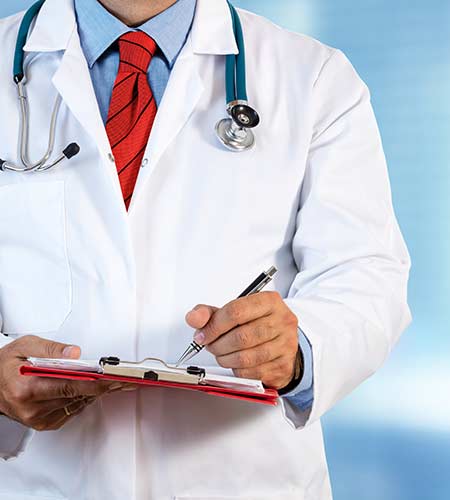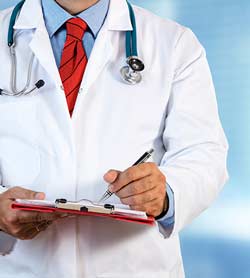Urgent Care for Sports Physical Exam Q&A
To ensure optimal physical condition for your athletic activities, consider scheduling a comprehensive sports physical examination at Express Health Urgent Care. Our experienced medical professionals will thoroughly evaluate your overall health and fitness status, providing you with the necessary results to confidently commence your athletic pursuits. For more information, contact us today or book an appointment online. We have convenient locations in East Harlem, NY, Metropolitan, NY, and Staten Island, NY.




Table of Contents:
Why is a physical exam important for sports?
What are the advantages of Sports physical examination?
What are specific tests that should be part of the sports physical?
What assessment is most important when conducting a sports physical?
A physical exam is important for sports because it can help identify any potential health issues or conditions that may affect your ability to safely participate in physical activity or organized sport. A sports physical can also help ensure that any necessary precautions or accommodations are made, and can provide a baseline for monitoring an individual’s health over time. Additionally, some sports organizations or leagues may require a physical exam as a prerequisite for participation.
There are several advantages to having a sports physical examination, such as:
● Identifying potential health risks – A sports physical can detect any underlying health conditions that may be exacerbated by physical activity, such as hypertension, asthma, or heart disease.
● Detecting injury or condition – A physical examination can detect any injuries or conditions that may have occurred during the sports activity and provide necessary treatment.
● Monitoring of overall health – A sports physical can provide a baseline for monitoring your health over time, which can help detect any changes or concerns.
● Ensuring safety – A sports physical exam can help ensure that any necessary precautions or accommodations are made to keep you safe while participating in physical activities.
● Meeting requirements – At times, sports organizations or leagues may require a sports physical examination as a prerequisite for your participation.
● Personalized recommendations – A sports physical examination can provide personalized recommendations for your physical activity, training, and nutrition.
● Cost-effective – Having a sports physical examination done can be cost-effective and prevent future medical expenses.
There are a variety of specific tests that can be a part of a sports physical examination, such as:
● Vital signs – Blood pressure, pulse, and respiration rate should be measured and recorded.
● Heart and lung examination – The examiner should listen to the heart and lungs for any abnormal sounds or rhythm.
● Musculoskeletal examination – The examiner should check for any joint pain, muscle weakness, or other musculoskeletal issues that may affect your ability to participate in sports.
● Neurological examination – The examiner should check for any signs of neurological issues, such as coordination, reflexes, and balance.
● Vision and hearing examination – Vision and hearing should be checked to ensure you are adequate for sports participation.
● Urinalysis – A urine sample should be collected and analyzed for any signs of infection or other health concerns.
● Blood tests – Blood tests such as blood count, glucose, cholesterol, electrolytes, and kidney function are useful to check overall health.
● Imaging studies – Depending on your medical history and the sports you will participate in, the examiner may order imaging studies such as X-ray, CT, or MRI scans.
The most important assessment when conducting a sports physical exam is a thorough medical history accompanied by a physical examination. These assessments are critical in identifying any potential health risks or underlying medical conditions that may affect your ability to participate in sports.
During the medical history, the examiner will ask you about past and current medical conditions, medications, allergies, and any previous injuries or surgeries. The examiner will also ask about any family history of diseases that may be relevant to sports participation. It is important to come prepared with a list of current medications and health conditions.
During the physical examination, the examiner will check your vital signs, as well as perform other examinations. Other physical exams include heart and lung examination, musculoskeletal examination, neurological examination, vision and hearing examination, and urinalysis. The examiner will also check for any signs of injury or other health concerns that may affect your ability to participate in sports.
Certain sports may have different specific requirements and assessments, and your history, age, and sex may also influence which assessments are most important. Therefore, the examiner will tailor the examination to your needs. Contact us for an appointment or walk in at your earliest convenience. Our team of professionals is ready to get you the answers and treatment that you need. We have convenient locations in East Harlem, NY, Metropolitan, NY, and Staten Island, NY. We serve patients from East Harlem, Manhattan, Brooklyn, Williamsburg, Greenpoint, Staten Island, Rossville, Tottenville, the Metropolitan New York City area, and surrounding neighborhoods in NY.


Additional Services You May Need
▸ Broken Bone and Fractures
▸ Chronic Disease Management
▸ COVID-19 Testing
▸ DMV Vision Tests
▸ Drug Testing/Screening
▸ EKG Services
▸ Illness and Injuries
▸ IV Fluids/Medications
▸ On-Site Lab + X-Ray
▸ STD Testing
▸ Stitches
▸ UTI Treatments
▸ Urgent Care
▸ Splinting
▸ Abdominal Pain
▸ Flu Test
▸ Sore Throat
▸ Blood Work
▸ Flu Vaccines
▸ Urine Test
▸ Pediatrics Services
▸ Adult Treatments



